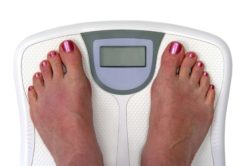 It has long been suspected weight gain is a slippery slope to breast cancer risk. Now studies are not only supporting this claim but also showing weight loss – even just 10 percent of total body weight – may also help prevent breast cancer. If you are one of the 65 million Americans caring for a loved one, studies also show weight management becomes a big challenge which can put caregivers at even greater risk for developing breast cancer.
It has long been suspected weight gain is a slippery slope to breast cancer risk. Now studies are not only supporting this claim but also showing weight loss – even just 10 percent of total body weight – may also help prevent breast cancer. If you are one of the 65 million Americans caring for a loved one, studies also show weight management becomes a big challenge which can put caregivers at even greater risk for developing breast cancer.
Most Americans gain only 1-2 pounds a year since college age, which doesn’t seem like anything to get too upset about until you do the math. After 30 years, when you are in your 50s and at menopausal age and possibly caregiving for an older parent or ill spouse, this accumulated weight gain can be 30-60 pounds. Not only will this increase your Body Mass Index (BMI) but it also puts you at risk for breast cancer and a host of other health issues including diabetes and heart disease. Researchers have long believed weight gain, accumulation of excess body fat, can fuel estrogen levels which have been linked to breast cancer tumors in postmenopausal women.
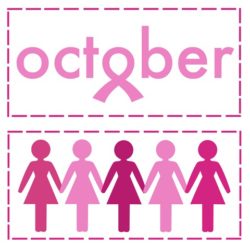 A National Cancer Institute (NCI) study of 72,000 women found a steady weight gain over years can double the risk of breast cancer versus those women who maintained a steady weight all those years. In fact, women in the study who started with higher BMI measurements, considered at an early age to be overweight or even obese, but maintained their higher weight over the years, did not show the increased risk in developing breast cancer.
A National Cancer Institute (NCI) study of 72,000 women found a steady weight gain over years can double the risk of breast cancer versus those women who maintained a steady weight all those years. In fact, women in the study who started with higher BMI measurements, considered at an early age to be overweight or even obese, but maintained their higher weight over the years, did not show the increased risk in developing breast cancer.
In a separate study published in 2012 by researchers from the Fred Hutchinson Cancer Research Center in Seattle, Washington, researchers found for the first time weight loss directly lowers hormones linked to breast cancer. By slowly losing weight through diet and exercise, you can lower the amount of these hormones circulating through the body, which can result in a decreased risk of developing breast cancer.
Maintaining your college weight is tough for anyone – 57 percent of the NCI study participants failed to keep their college figures. Metabolism slows and childbirth weight gains may never completely come off (just ask Jessica Simpson how tough it was), work life may cause increased stress that triggers snacking and late hours or travel are challenges to a consistent fitness routine. Researchers are calling this busy life syndrome.
For caregivers, the added stress and time dedicated to caring for an older loved one takes over – fast food instead of good nutrition, lack of gym time and restless nights with fewer hours of sleep – are all caregiver health risks. In fact, a Commonwealth Study found caregivers are twice as likely to develop chronic illness earlier in life – often attributed to increased and prolonged stress.
While some pounds may have crept on, Dr. Anne McTiernan who led the Fred Hutchinson study believes just 10 percent weight loss can have major impact and reduced breast cancer risk. Other researchers support the findings including one of the world’s leading epidemiologists, Dr. Walter Willett of Harvard University. He told ABC News, “Weight loss by postmenopausal women is one of the best ways to reduce risk of breast cancer.” Willett also mentions a study showing women who lost a moderate amount of weight had a 60 percent lower risk of breast cancer.
Calculate Your BMI
Both men and women throughout their lives should have a BMI measurement of 18.5 – 24.9.
Here is how to calculate yours:
- Take your weight
- Divide it by your height in inches
- Divide this new number by your height in inches again (yes, a second time)
- Multiply the new number x 703
Prescription for Healthy Weight – 5 Things Caregivers Can Do to Reduce Breast Cancer Risk
- Get your shuteye.
In a National Alliance for Caregiving (NAC) study, 87 percent of caregivers felt they did not get enough sleep and cited insomnia as a side effect of caregiving. Most experts advise at least 7-8 hours of restorative, uninterrupted sleep. One Australian research study found less than five hours of sleep a night can be equal to .05 blood alcohol level and another study found just 5.5 hours or less of sleep a night can translate into a 12-pound weight gain over one year.
- Cut back on cookies and turn to healthy snacks.
Because our metabolism slows as we age, most experts agree you should decrease the amount of calories you eat by 10 percent every decade. You can also increase your intake of super foods to give you energy and which are loaded with anti-oxidant cancer-fighting ingredients. WebMD encourages you to swap out crackers for almonds, replace red meat with salmon, eat more blueberries than blueberry muffins and 2 oz. of chocolate a day is okay – as long as its 70 percent cocoa – it will decrease your cholesterol levels by 10 percent!
- Get physical.
According to Susan G. Komen for the Cure, regular exercise reduces your breast cancer risk by 10 to 20 percent. An added benefit is physical activity boosts the body’s immune system which can help slow or kill the growth of cancer cells. Take the stairs at work, walk around the block in the morning or at night – just 30 minutes a day – which can be broken down into three 10-minute cardio, heart-pumping sessions – will do.
- Sobriety Test.
A NAC study found 10 percent of caregivers use alcohol to cope with their stress but drinking more than one glass of alcohol per day increases your breast cancer risk by seven percent. If you have 2-3 glasses of alcohol per day, your risk increases by 20 percent according to Susan G. Komen for the Cure.
- De-stress
Stress is the No. 1 complaint for caregivers. But stress releases a hormone called cortisol which can lead to belly fat – the worst kind of fat to have. Finding ways to de-stress whether it is meditation, breathing exercises, yoga or finding outlets to let off steam such as support groups or calling a friend who will let you vent will keep you healthier in body, mind and spirit so you can continue to care for your loved one and for yourself.
©2017 Sherri Snelling

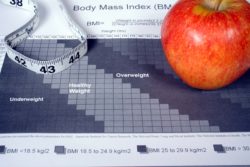
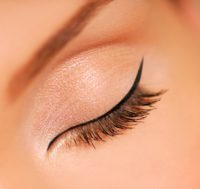
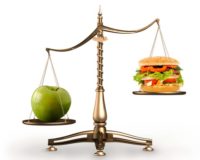
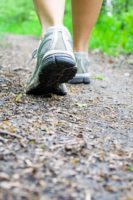





0 Comments